FISETIN: Why are people taking this supplement?
Fisetin is a flavonoid found in many fruits and vegetables. It has been shown to have anti-inflammatory, antioxidant, and anticancer effects. Because of the potential health benefits it may provide, fisetin supplements are becoming more popular as people look for alternatives to other medications that they may not be comfortable with or want to take long term. In this blog post we will explore what fisetin is, why people are taking it, potential benefits and discuss current research being done around Fisetin and how this could impact future treatments available for those looking to improve their health naturally.
. . .
Origins & History of Fisetin
Fisetin is a naturally occurring flavonoid compound. Flavanoids are water-soluble compounds found in plants and have antioxidant properties. Water-soluble means that Fisetin can dissolve in water. Fisetin is not found to be fat-soluble, which means it cannot dissolve into fats or lipids that are normally soluble in oils. Fisetin was isolated from the Fruiting bodies of a Fungus called Fomes Fomentarius. The Fruiting body of this fungus is responsible for producing all of the spores that are used to reproduce. Fisetin can also be found in many plants including Ginko Biloba, strawberries, persimmons. Fisetin’s chemical structure was first identified chemical formula was first described by Austrian chemist Josef Herzig in 1891. Fisetin can be found throughout the plant kingdom, where it acts as a photosynthesis inhibitor and UV protectant. Fisetin has even been isolated from insects, including ants, aphids, and wasps.
Fisetin is also said to be one of the many flavonoids that are found abundantly in the plant subfamily Cornoideae, which includes Foeniculum vulgare, Foeniculum dulce, and Coriandrum sativum. Fisetin was first isolated from Foeniculum vulgare, Fennel. Fisetin was first isolated from the bark of the Pacific wax myrtle tree and has since been found in many fruits and vegetables. Fruits and vegetables that are high in fisetin include:
– Strawberries; specifically, they are Fisetin’s highest food source.
– Red grapes
– Apples
– Asian pear
– Fennel seeds (Foeniculum vulgare) Fisetin is a member of the flavonoids, which are plant pigments produced by many plants to help protect themselves from outside stressors, such as ultraviolet light, insects, and herbivores.
Why are people taking Fisetin?
Natural supplements are becoming increasingly popular in the health and wellness community. There are a number of different types of natural supplements such as probiotics, prebiotics, digestive enzymes, amino acids and herbal extracts that all serve their own specific purposes. There are many reasons why people take natural supplements. Some people want to support their bodies’ natural processes, others want natural help with a specific health concern, and some just want to maintain good health. Dietary supplements have been one way that consumers have sought to fulfill unmet dietary needs. Fisetin is one of many supplements like this that people are turning to attempt to make themselves feel better. Many of my patients opt to take supplements to make sure they get enough essential nutrients and to maintain or improve their health.
POTENTIAL BENEFITS
Fisetin is a naturally occurring antioxidant found in many fruits and vegetables. Fisetin is known as a neuroprotective agent, meaning it has been shown to have potential benefits in helping the body fight against both acute and chronic neurological diseases. Fisetin is one of the most common and bioactive flavonoids which possesses potential neuroprotective effects. Fisetin also enhances learning and memory, decreases neuronal cell death, and suppresses oxidative stress. Fisetin has been shown to have significant protective effects on the body from oxidative stress, which is why Fisetin may be taking it as it can potentially be beneficial for those looking to improve their health or prevent disease. Oxidative stress refers to the level of damage done to cells in the body by free radicals. Fisetin has been shown to have some effect against oxidative stress, but it is not yet known whether Fisetin itself can actually reduce oxidative stress or if Fisetin can enhance antioxidants that are already present in the body. It is also unknown how Fisetin works as an antioxidant. Fisetin may work as a scavenger, Fisetin can bind to free radicals, Fisetin could be regenerating the antioxidants that it is acting with, or Fisetin itself may act as an antioxidant. There is still much to learn about Fisetin.
FISETIN AND LONGEVITY
As we age, we accumulate damaged cells. Damaged cells can cause tissues to function improperly or not work at all. Fisetin has been shown to reduce senescent cell burden in mice by activating the body’s enzymes that clear out senescent cells. Senescent cells are cells that have stopped dividing to replicate themselves. Senescent cells can accumulate in all tissues with age and secrete pro-inflammatory cytokines and chemokines. Fisetin has been shown to increase the lifespan of mice. In a recent study, Administration of fisetin to wild-type mice late in life restored tissue homeostasis, reduced age-related pathology, and extended median and maximum lifespan.
FISETIN & and mTOR
mTOR is responsible for controlling cell growth, division, and metabolism. Recent research shows how Fisetin inhibits the mTOR pathway. When you inhibit the mTOR pathway you are essentially slowing down the aging process.
Fisetin & Inflammaging
Inflammaging refers to the chronic low-grade inflammation that is caused by cellular damage, oxidative stress, and mitochondrial dysfunction. Fisetin is believed to be able to reduce inflammation because Fisetin has shown an ability to reduce cellular (nuclear) damage in animal studies. This is accomplished by Fisetin’s ability to inhibit by inhibiting pro-inflammatory enzymes and substances, like lipoxygenases and NF-kB.
FUTURE RESEARCH
As research continues on this compound more information about how fisetin could be used for medicinal purposes will be revealed. Fisetin holds great potential for multiple applications in medicine, and research studies have shown Fisetin’s positive anti-inflammatory and anticancer effects on different cell types. Over the last two decades, much attention has been drawn to plant-derived bioactive compounds as novel therapeutic agents for treatment of neurodegenerative diseases such as Alzheimer’s disease (AD) and Parkinson’s disease (PD). The current research suggests that the benefits of Fisetin may be worth considering for those looking for natural options to improve their health.
Disclaimer: The content is not intended to be a substitute for professional medical advice, diagnosis, or treatment. Additionally, the information provided in this blog, including but not limited to, text, graphics, images, and other material contained on this website, or in any linked materials, including but not limited to, text, graphics, images are not intended and should not be construed as medical advice and are for informational purposes only and should not be construed as medical advice. Always seek the advice of your physician or another qualified health provider with any questions you may have regarding a medical condition. Before taking any medications, over-the-counter drugs, supplements or herbs, consult a physician for a thorough evaluation. Always seek the advice of your physician or other qualified health care provider with any questions you may have regarding a medical condition or treatment and before undertaking a new health care regimen, and never disregard professional medical advice or delay in seeking it because of something you have read on this or any website.


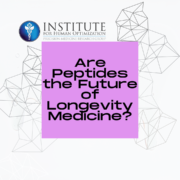

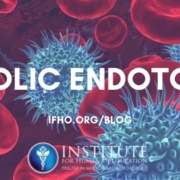
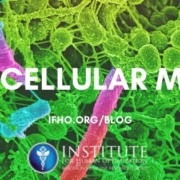
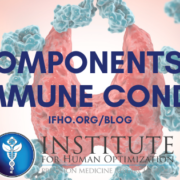

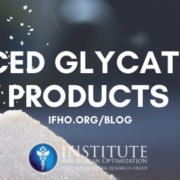




Leave a Reply
Want to join the discussion?Feel free to contribute!